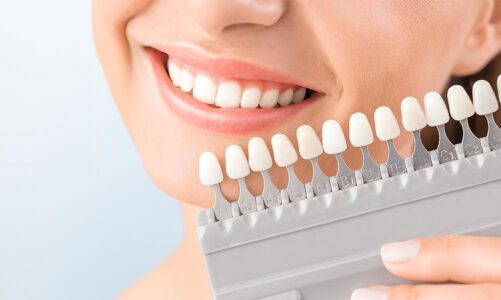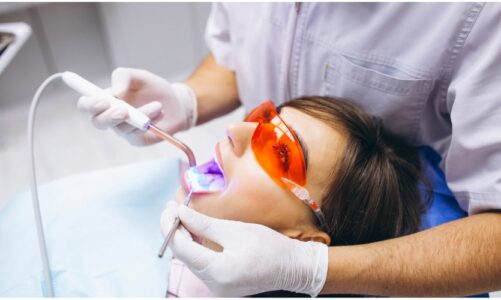Losing teeth can have a significant impact on an individual’s quality of life, affecting not only their self-esteem and confidence but also their ability to eat and digest food properly. For individuals, finding the right solution to tooth loss is crucial for maintaining overall health and well-being. Dentures in Orange can provide a viable solution, but they can also present new challenges when it comes to nutrition.
In this article, we’ll explore the impact of dentures on nutrition, including the challenges of eating with dentures, the importance of proper nutrition for denture wearers, and tips for maintaining a healthy diet with dentures.
What Are The Challenges of Eating with Dentures?
Dentures can affect the way we eat and digest food in several ways:
- Changes in taste and texture: Dentures can alter the way we experience the taste and texture of food. This can make it difficult to enjoy your favorite foods or adapt to new ones.
- Difficulty with chewing and swallowing: Dentures can make it harder to chew and swallow food properly, leading to difficulties with digestion and nutrient absorption.
- Limited food choices: Denture wearers may need to avoid certain foods that are difficult to chew or swallow, such as nuts, seeds, or hard fruits and vegetables.
- Nutrient deficiencies: The challenges of eating with dentures can lead to nutrient deficiencies, particularly if denture wearers are not able to consume a balanced diet.
What is The Importance of Proper Nutrition for Denture Wearers?
Proper nutrition is essential for denture wearers for several reasons:
Supports Bone Health
- A diet rich in calcium and vitamin D helps maintain strong bones, which is crucial for denture wearers. This is because dentures can put additional stress on the jawbone, and a diet lacking essential nutrients can exacerbate bone loss.
Promotes Wound Healing
- A balanced diet that includes adequate protein, vitamins, and minerals supports wound healing and tissue repair. This is particularly important for denture wearers, as they may be more prone to oral lesions or irritation.
Maintains Oral Health
- A diet low in sugar and acid helps prevent oral health issues, such as denture stomatitis, a common condition that causes inflammation and irritation under the denture.
Supports Overall Health
- A well-balanced diet helps maintain overall health and well-being, reducing the risk of chronic diseases like heart disease, diabetes, and obesity. This is particularly important for denture wearers, as they may be more susceptible to these conditions due to age or other health factors.
Helps Maintain Denture Fit
- Proper nutrition can help maintain a healthy jawbone and surrounding tissues, ensuring a secure and comfortable fit for the denture.
Reduces Risk of Malnutrition
- Denture wearers may be at risk of malnutrition due to difficulties with eating and digesting certain foods. A balanced diet that includes essential nutrients can help reduce this risk.
Supports Immune Function
- A diet rich in fruits, vegetables, and whole grains helps support immune function, reducing the risk of infections and other oral health issues.
Helps Manage Chronic Conditions
- Proper nutrition can help manage chronic conditions, such as diabetes and arthritis, which are common among denture wearers.
Supports Healthy Weight
- A balanced diet helps maintain a healthy weight, reducing the risk of obesity-related health issues.
Improves Overall Quality of Life
- Proper nutrition can improve the overall quality of life for denture wearers, enabling them to enjoy their favorite foods, maintain their independence, and live life to the fullest.
Key Takeaway
Dentures can have a significant impact on nutrition, presenting challenges such as changes in taste and texture, difficulty with chewing and swallowing, and limited food choices. However, with a little planning and creativity, it’s possible to maintain a healthy diet with dentures. By choosing soft, easy-to-chew foods, avoiding sticky or hard foods, and staying hydrated, denture wearers can ensure they’re getting the nutrients they need to stay healthy and thrive.




